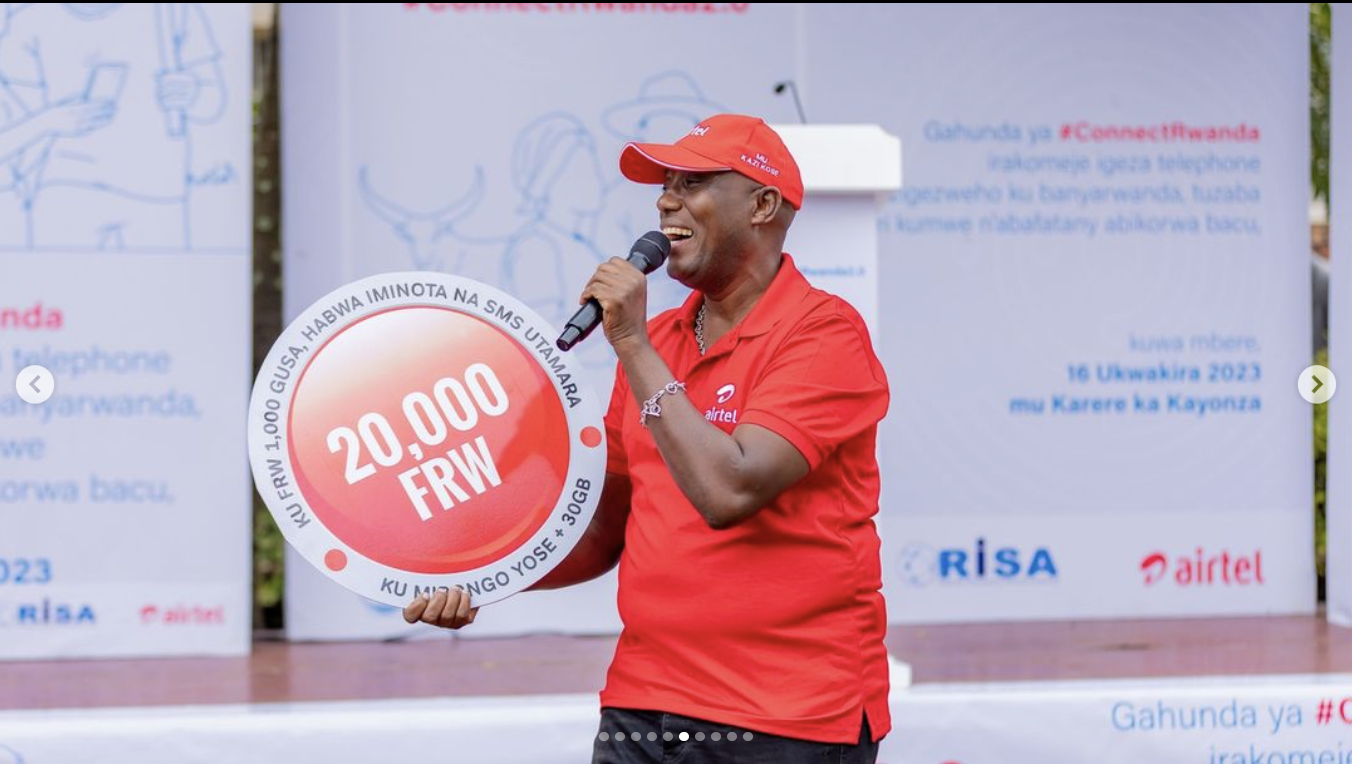
Airtel Launches $16 Smartphone in Rwanda As Part of Digital Inclusion Efforts
In an endeavor to bridge the digital divide and empower Rwandans, Airtel Africa has joined forces with the Rwandan government to launch a budget-friendly 4G smartphone. This initiative is a crucial component of the broader ConnectRwanda 2.0 program, which aims to provide over a million Rwandans with access to cutting-edge LTE smartphones by 2024.
The smartphone, available at a price of USD$16.5 (approximately 20,000 Rwandan Francs), comes with a nominal monthly fee of USD$0.8, making it an affordable choice for many.
The initiative was unveiled in Kigali, ahead of the 2023 Mobile World Congress, with notable attendees including the Group CEO of Airtel Africa, Segun Ogunsanya, and Rwanda’s Minister of ICT, Hon. Paula Ingabire, represented by Mr. Gordon Kalema, the Director General of Digital Transformation in the Ministry.
Mr. Ogunsanya expressed his enthusiasm for this venture, highlighting its potential to accelerate Rwanda’s digitization efforts. On the other hand, Mr. Kalema emphasized the Rwandan government’s ambitious target of digitizing all government activities by 2024, underscoring the importance of this initiative in achieving that goal.

Digital Inclusion for All
Beyond the affordability of the smartphone, subscribers will also reap the benefits of 1GB of data daily and unlimited calls to any network in Rwanda, promoting seamless digital connectivity.
The initiative has garnered global endorsement, with a significant contribution from Reed Hastings, the co-founder, and Chairman of Netflix. This partnership between Airtel Rwanda and Reed Hastings marks a significant milestone toward unlocking smartphone affordability.
Public-Private Partnerships (PPPs) in Tech Transformation
Public-private partnerships (PPPs) have emerged as a driving force behind transformative tech-driven initiatives across the globe. The collaboration between Airtel Africa and the Rwandan government in launching an affordable 4G smartphone serves as a notable example, emphasizing the significance of such partnerships in advancing technology and digital inclusion.
PPPs represent a harmonious fusion of public-sector resources and private-sector innovation. In the case of Airtel Africa and Rwanda, this partnership has paved the way for increased accessibility to advanced technology. By harnessing the expertise and resources of a private enterprise, the government can magnify its capacity to bring about meaningful change. This partnership acknowledges that technology knows no bounds and can catalyze broad-based development.
In today’s interconnected world, access to information and services online is a fundamental requirement. Tech-driven initiatives, like the one in Rwanda, aim to bridge the digital divide. These initiatives are multifaceted, offering not only smartphones but also data plans and connectivity, enabling users to access vital resources, engage in online education, and participate in the digital economy.
The impact of PPPs in the tech sector extends beyond accessibility. The collaboration in Rwanda demonstrates that these partnerships have the potential to foster economic growth. By combining public sector commitment and private sector ingenuity, we witness the creation of solutions that address pressing issues while simultaneously spurring economic activity.
The benefits extend beyond mere economic gains. Such partnerships often lead to the creation of a technology ecosystem that encourages entrepreneurship and local skills development. This can create opportunities for digital literacy, job creation, and the growth of a tech community in Rwanda.
Sourced from PC Tech Magazine & TechNext
